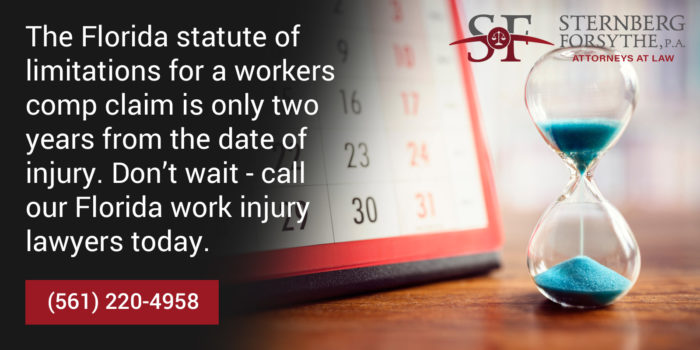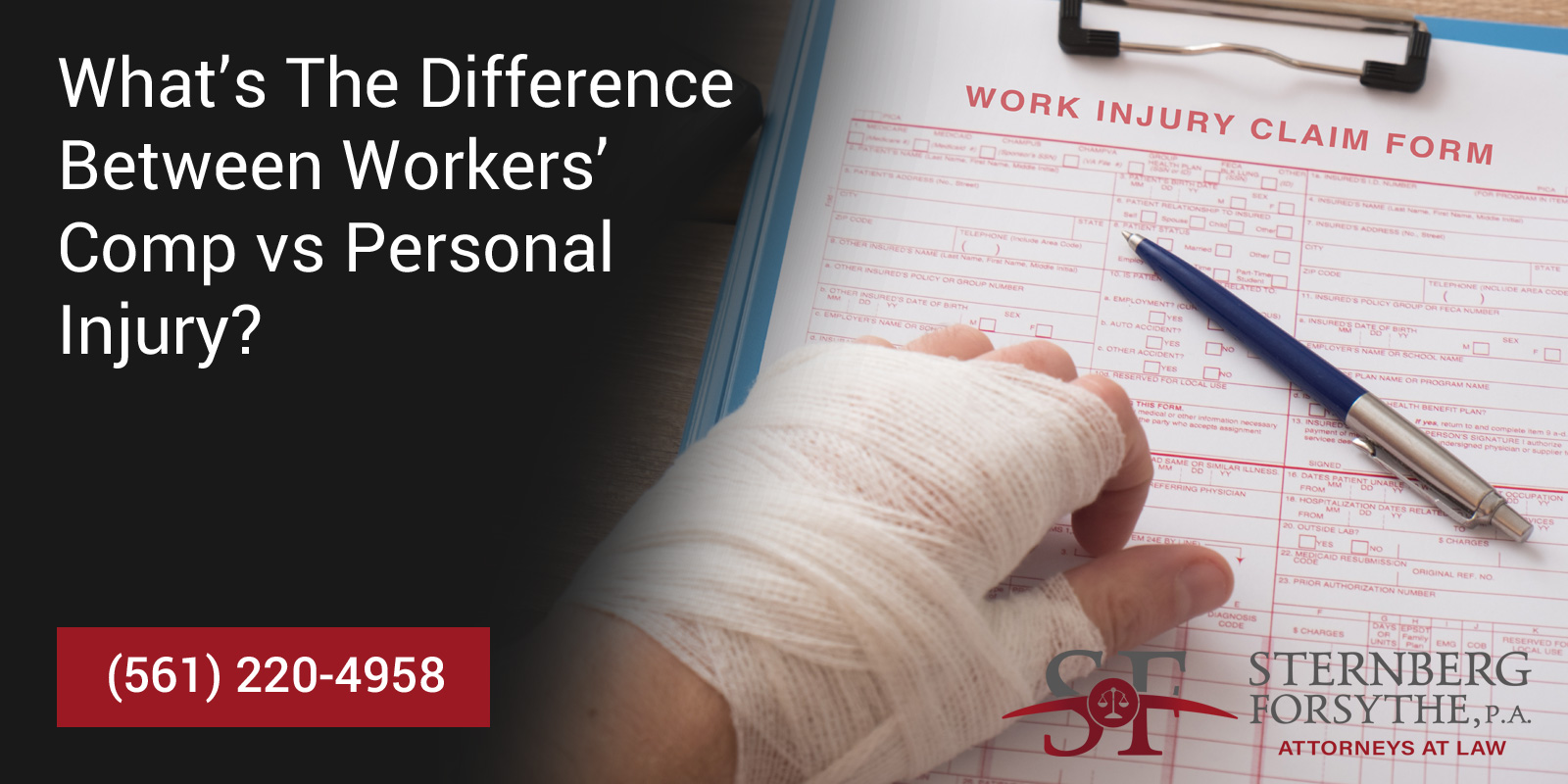When employees suffer workplace injuries, most of them generally assume that their only option for compensation is to file a personal injury claim. Generally, employees injured on-the-job automatically qualify to file a workers comp claim with their employer to receive benefits. In some situations, it’s possible to file a personal injury claim for a work-related injury as well, for example when a third-party is responsible for your injuries during the scope of work. An experienced Florida work injury lawyer from Sternberg | Forsythe, P.A. can explain the major differences between workers comp vs personal injury and help you determine which claim(s) you can file to recover full compensation for your injuries.
Important differences between workers’ comp vs personal injury
1. Personal injury cases require fault unlike workers’ compensation claims
In Florida, with few exceptions, an employee who suffers a workplace injury is automatically eligible to collect specified workers’ compensation benefits. Usually, no-fault need to be established for the injury. Whether the employer, another employee, poor work conditions, or equipment caused the injury, the employee will collect benefits as long as they are eligible to do so. In a personal injury claim, however, you must show that the other party owed you a duty of care and that their negligent or incorrect actions caused your injuries. These claims, in most cases, arise when a worker gets injured in a car accident or in a slip and fall accident where the property owner is to blame.
2. Types of damages you can recover
Another significant difference between workers’ comp vs personal injury claims is the type of damages you can recover.
In a Florida workers’ compensation claim, an eligible worker who suffers a workplace injury does not qualify to receive non-economic damages such as pain and suffering. Instead, the employee will promptly collect medical benefits, lost wages as long as they cannot resume work, and, where necessary, permanent impairment benefits.
Unlike in Florida workers’ compensation, personal injury claims involve a one-time settlement that covers all damages resulting from the injury, including:
- Medical costs (past and future)
- Lost wages
- Lost future earning capacity
- Loss of quality (or enjoyment) of life
- Pain and suffering
- Loss of consortium
- Permanent impairment benefits
- Punitive damages
3. The overall legal process is not the same
As soon as you suffer a workplace injury, you’ll need to notify your employer and then fill out all the required documents to initiate your claim. Your employer’s insurer will then investigate your workplace injury claim, and your benefits will begin almost immediately after your claim’s approval.
In a personal injury claim, the process of recovering compensation is not as straightforward. It involves seeking medical attention, gathering detailed evidence of the accident, reporting to relevant authorities, negotiations, and receiving a settlement check. This is often a long, emotionally-draining process.
4. Florida statute of limitations in a workers comp vs personal injury case
If, for any reason, you wish to sue your employer, there’s a strict time limit to how long you can wait before filing a lawsuit. This is commonly known as the statute of limitations. In the case of workers’ compensation, for instance, the time limit within which injured workers are allowed to file a lawsuit is two years from the date of the accident. However, the statute of limitations is four years for Florida personal injury lawsuits.

Who is eligible to sue their employer after a workplace injury in Florida?
In Florida, a workers’ compensation lawsuit is often filed when the insurer denies some or all the benefits or when the employer retaliates by firing or demoting an injured worker. However, these are not the only instances when an injured employee can sue their employer in Florida.
Under Florida law, interstate railroad workers and crewmembers of vessels are legally permitted to sue employers when they suffer injuries at work. For example, an interstate railroad worker is legally eligible to sue their employer for damages under the Federal Employers Liability Act (FELA) if they get injured on-the-job. Similarly, a crew member of any type of boat is authorized by the Jones Act to sue their employer for damages, including pain and suffering, if they get hurt on-the-job.
Contact an experienced Florida work injury lawyer to file your workers comp claim today
If you’ve suffered workplace injuries, you may not know what options you have. Fortunately, an experienced Florida work injury lawyer from Sternberg | Forsythe, P.A. can help you understand your options and make sure you get the benefits you deserve after a work accident. Contact us online or give us a call today to schedule your free consultation.

